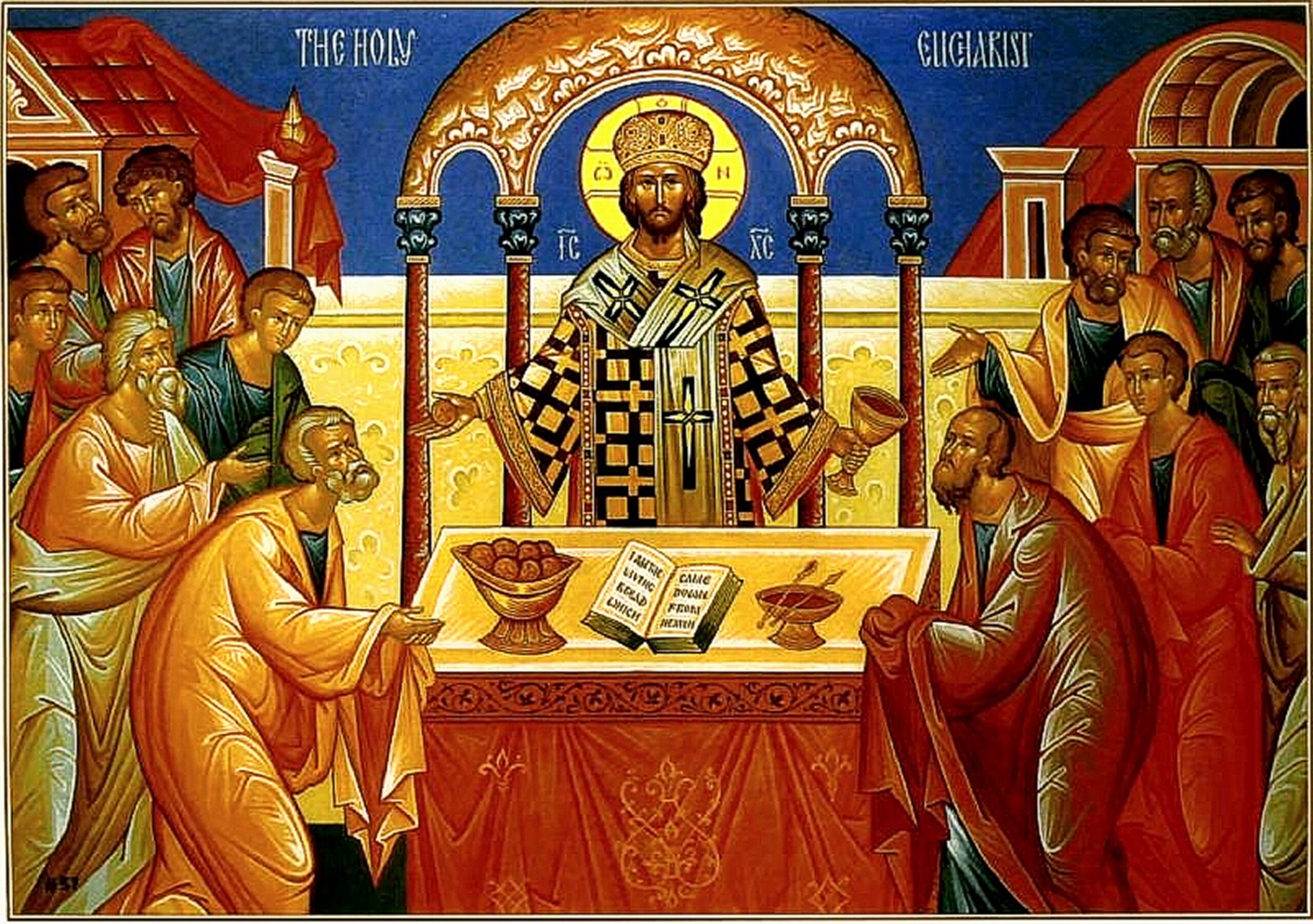Again, we pray to You, be mindful of Your holy, catholic, and apostolic Church, which is from one end of the inhabited earth to the other. Grant peace to her which You have obtained with the precious Blood of Your Christ. Strengthen also this holy house to the end of the ages.
(Divine Liturgy of St. Basil the Great, p. 32)
—
And Jesus answered him, “Blessed are you, Simon Bar-Jona! For flesh and blood has not revealed this to you, by My Father who is in heaven. And I tell you, you are Peter and on this rock I will build My church, and the powers of death shall not prevail against it. I will give you the keys of the kingdom of heaven.
Matthew 16:17-19
Christ is Risen!
There are many examples where there is one word in English that has more than one word corresponding in Greek. The word “love” is one such example. In English, we can use the word “love” to say, “I love my child,” and “I love pizza.” In the Greek language, we would use the word “agape” to describe the love has for a child, a kind of love where one would die for someone. “Agape” would not be ascribed to pizza, something we’d pay a few dollars for and nothing more.
The word “church” is also an example. There are two Greek words that are translated as “church.” There is the word “naos,” which refers to the church building, the temple in which we worship. The word “naos” is mentioned 45 times in the New Testament. (https://hermeneutics.stackexchange.com/questions/45600/what-is-the-meaning-of-naon-in-matthew-275) On the other hand, the word “Ekklesia” refers to the church as a community, and this words is found 114 times in the New Testament. (https://christianscourier.com/articles/what-is-the-meaning-of-ekklesia)
When we, as Christians, say that we belong to “the church”, we don’t belong to a building. We belong to a community. We worship in the “naos,” the temple, but our identity as Christians is as members of a community. We can’t belong to a “church” and be absence from the life of the church as “community.” That’s why it’s hard to see those who attend worship only rarely as members of the “church” because to be a part of the church is to be immersed in the life of the church “community.” The church community worships, learns, has fellowship, serves one another, serves the greater community and so many other things.
In this prayer where we remember the world, we have begun with saints and those who have passed away and now we begin the commemoration of many classifications of those who are living, beginning with the church as a divinely created institution.
In Matthew 16:18, Jesus tells Peter that he is the rock on which the church will be built, and uses the word “ekklesia”. The church is the institution that spreads the Gospel of Jesus Christ, the good news of salvation. In the prayer, St. Basil references words from the Creed, about the holy, catholic and apostolic character of the church. “Holy” means set apart. The church is set apart from all other institutions and organizations in the world because it has as its singular goal to spread the Gospel of Jesus Christ. It may have characteristics of other organizations—property, employees, bills to pay, etc.—but it exists to do one thing—spread the Gospel and make disciples. It is set apart from the world to preach a message of holiness, that we are to be set apart as Christians, from the things that are secular and to keep our eyes on the things that are holy.
“Catholic” in this instance means “universal.” The Church is universal—it seeks to spread the Gospel throughout the world. Also, the Church is everywhere. It is not limited to a building, or to a few hours a week we spend in the building. We are part of the Church at all times—we may worship corporately a couple of hours a week, but the rest of the week should include prayer, reading of Scripture and service to others.
“Apostolic” refers to the fact that our Church traces its origins to the Apostles. We have what is called “apostolic succession” of our bishops, meaning that our bishops can trace their lineage back to the time of the Apostles. If someone proclaims himself a bishop, or if a priest sets up a community outside of a canonical bishop, then the bishop and the community are not Orthodox because they are not apostolic.
In this prayer, we pray for the holy, catholic and apostolic character of the church, and we pray for the “ekklesia” that Christ founded. In Matthew 28:19, Christ tells the disciples, in what is known as the Great Commission, to go out and “make disciples of all nations.” The prayer also asks for God to bless our endeavors to make this Great Commission continue to bear fruit, as we pray that the Church will spread “from one end of the inhabited earth to the other.” (Divine Liturgy of St. Basil the Great, p. 32)
We pray for peace in the church, so that the message can be effectively spread. If we are in a state of turmoil, we can’t fulfill the mission of the church. Thus, we pray for peace both from within and from outside the church. There will be additional references to peace and to our civil authorities later in the prayer.
Finally, mention is made of the temple in which we are offering the Divine Liturgy, “this holy house.” Because the temple is the place where the worship of the Church community takes place, we also pray for its strength, and for it to stand strong and for that strength to be permanent.
The Church is the institution that has preserved and spread the faith. As we begin a prayer for the world, it is appropriate to pray for the Church, the local community and the international community.
